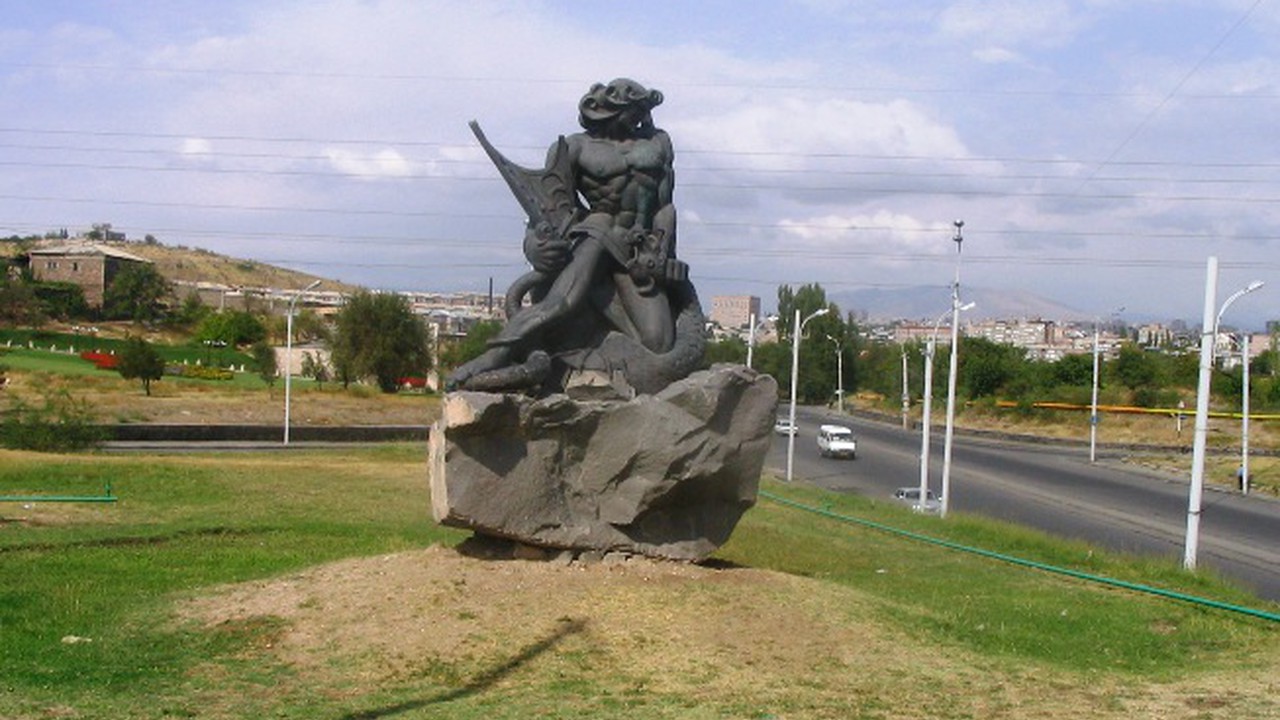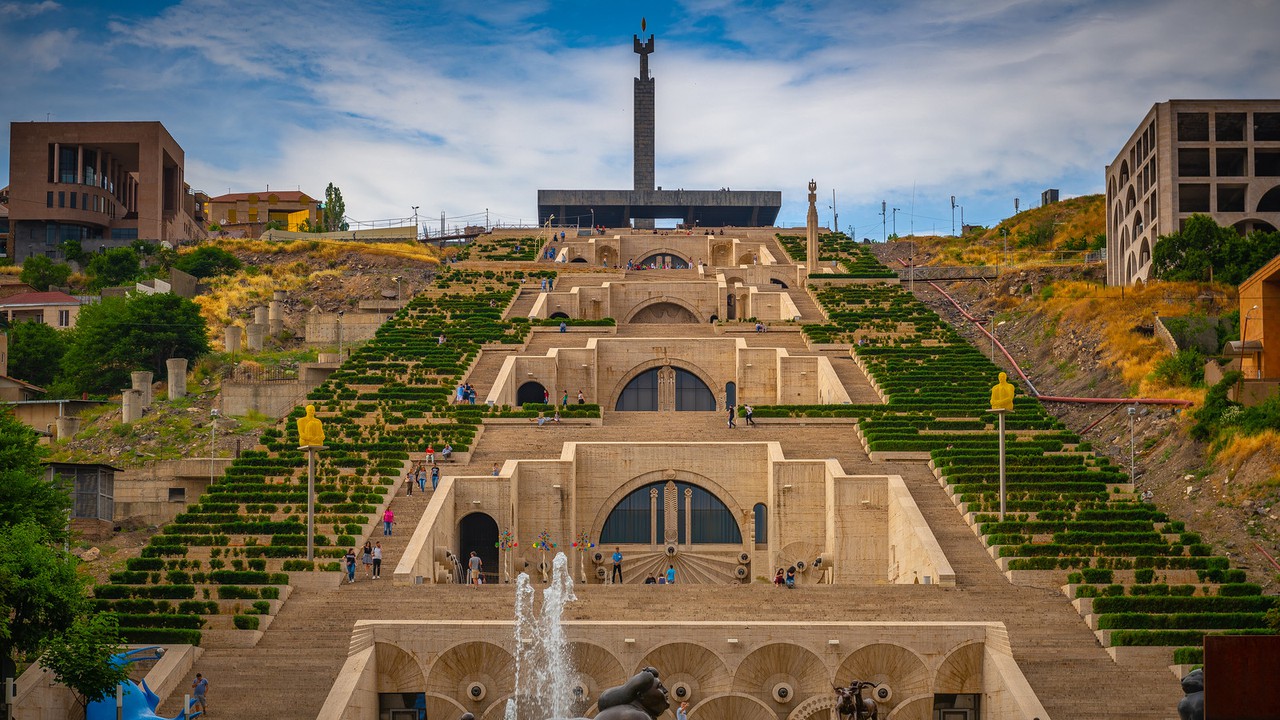MONUMENTS

VAHAGN THE DRAGON SLAYER
1969
State index: 1․7․10
Sculptor: Karlen Nurijanyan
The
monument to Vahagn, the supreme god of war, victory and thunder in ancient
Armenian mythology, is located on Admiral Isakov Avenue. According to
tradition, Vahagn fought a duel with dragons embodying darkness, from which he
received the nickname Dragon
Slayer.
The
sculpture was created in the 1960s by Karlen Nurijanyan. It was installed in
1969 on Lenin (now Mashtots) Avenue. In the 1970s, it was moved to the area
adjacent to the building of the Union of Artists of Armenia, in the 1980s, to
Echmiadzin Highway. In the 1990s It fell and broke from the wind. In 2001, it
was restored by the famous fragment-sculptor
Nerses
Charkhchyan. On December 19, 2004, it was installed on Admiral Isakov Avenue.
It
is a copper composition, placed on a raw
basalt
stone block. The height is 3.5 m. It represents the god Vahagn fighting the
dragon. The sculpture expresses the idea of the struggle between life and death, the victory of good
over evil.
A
copy of the statue in 1971
was
installed in front of the House of Culture of the village of Armavir, Armavir
region of the Republic of Armenia.

